AI-powered laptops in academics: Opening doors to endless possibilities for educators and students
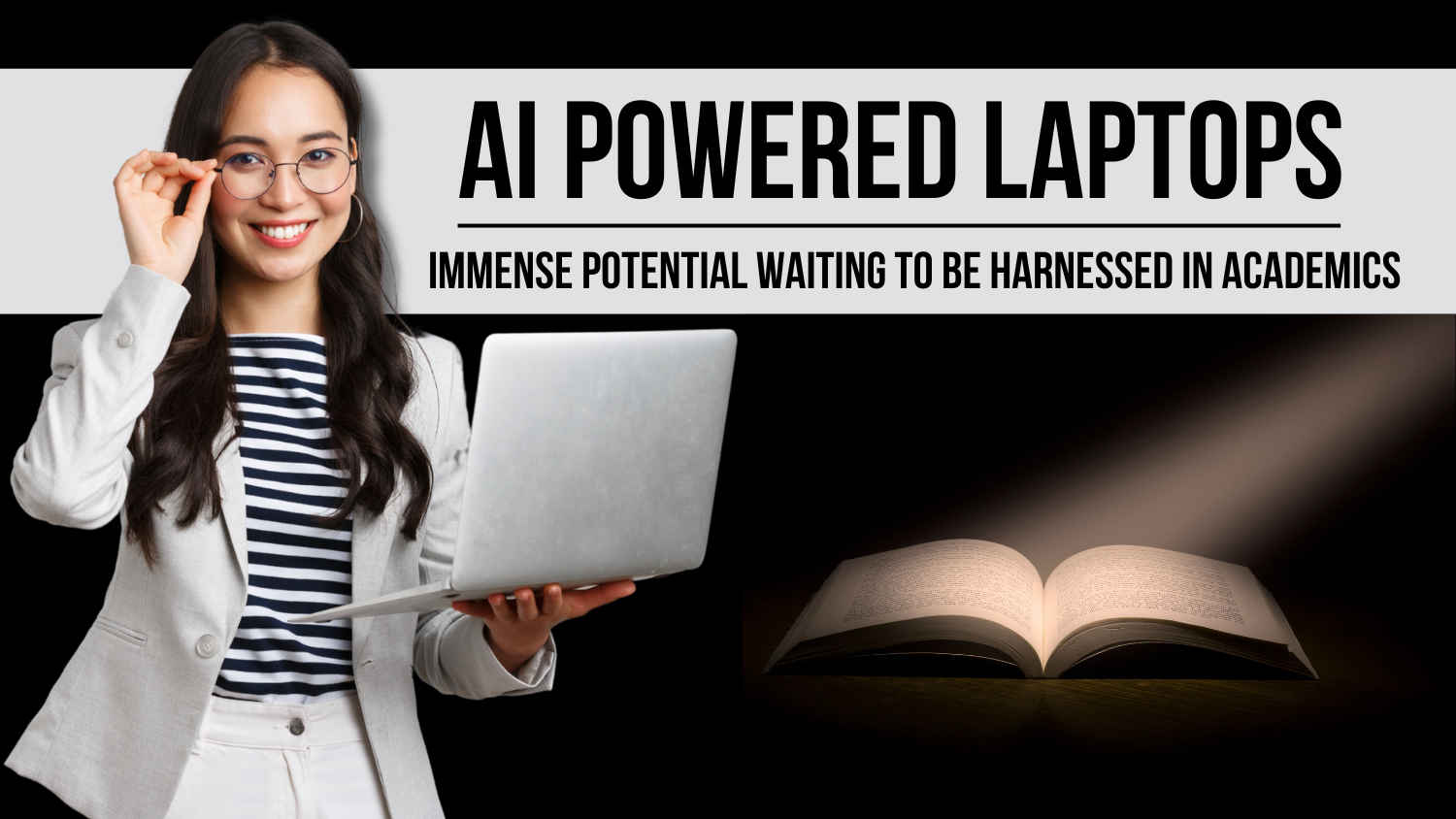
Artificial intelligence has been the hot word in the world of science and technology for the last couple of years. Generative AI has become more powerful than ever before, and devices such as laptops pack powerful enough hardware to process the information required for an AI engine natively. This has led to an influx of AI-powered laptops in the market that have opened the gates to academic possibilities that were earlier hard for the masses to access. And, we are already seeing several applications of AI-powered laptops in academics.
From accessibility to personalisation of courseware for students, the possibilities are endless. Brands across the board, be it on the software side of things or the hardware side, are investing more and more funds into developing tools that will help individuals involved in the world of academics to ensure that they are getting their work done with increased efficiency. A study published by IDC in September 2023 highlighted the increase in the adoption of AI in the education sector, stating that “shipments of products to be used in learning and education reached 99.3 million units in 2023 and are expected to exceed 100 million units in 2024. In addition, it is estimated that by 2027, more than 90% of these devices will be equipped with AI-enhanced functionality.”
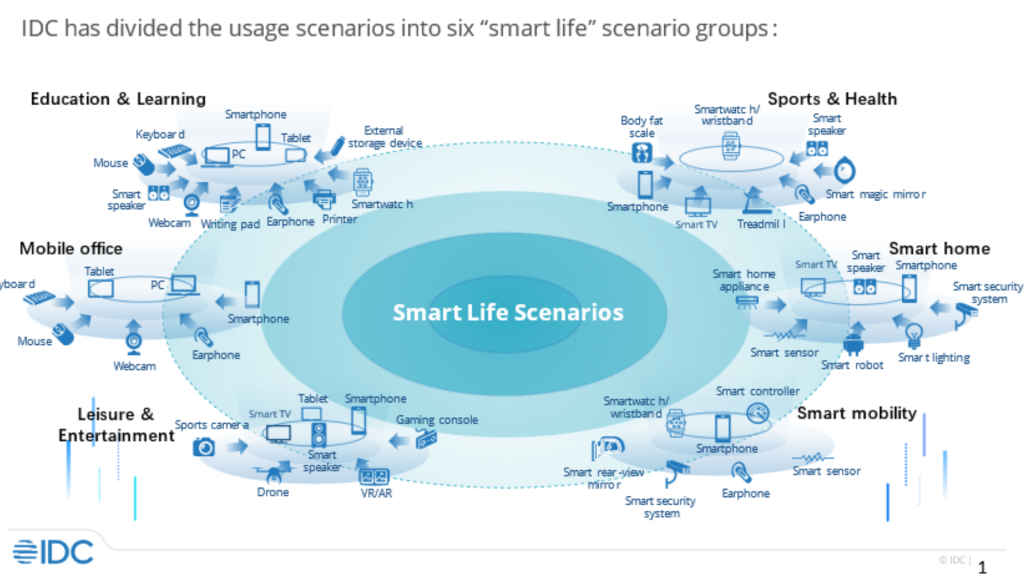
So, to explore the ways in which AI-powered laptops can be helpful to you in your academic journey, we have curated a list of possible applications of AI-powered laptops in academics. Here, we will also be taking a look at some of the ways in which students and educators can safeguard themselves against the anomalies of AI.
AI-powered laptops in academics – The benefits of the technology and possible applications
Let’s get started by having a look at the ways in which AI-powered laptops in academics are beneficial for students –
- Personalised learning for students
- Academic research assistance
- Optimised execution of hardware-intensive tasks
- Easy and quick assessments and solutions to problems
How can AI-powered laptops in academics help students with personalised learning?
We know that AI-powered tools that are available to the masses right now are extremely capable of learning the behaviour patterns of the users and extrapolating information based on them. Now, with AI-powered laptops which run an AI bot that constantly monitors the academic preferences of the students, it can create a personalised learning environment for the student who is using the laptop.
A personalised learning environment created on an AI-powered laptop will ensure that the student is presented with the courseware in the way that they prefer. This includes the assistive media resources, the tonality of the content, and the pace at which the student is learning. For educators, it opens the doors to ensure that their courseware is prepared in a way that inherently attracts the attention of the students, and enhanced insights about the learning process of students can help them ensure that no child is left behind.
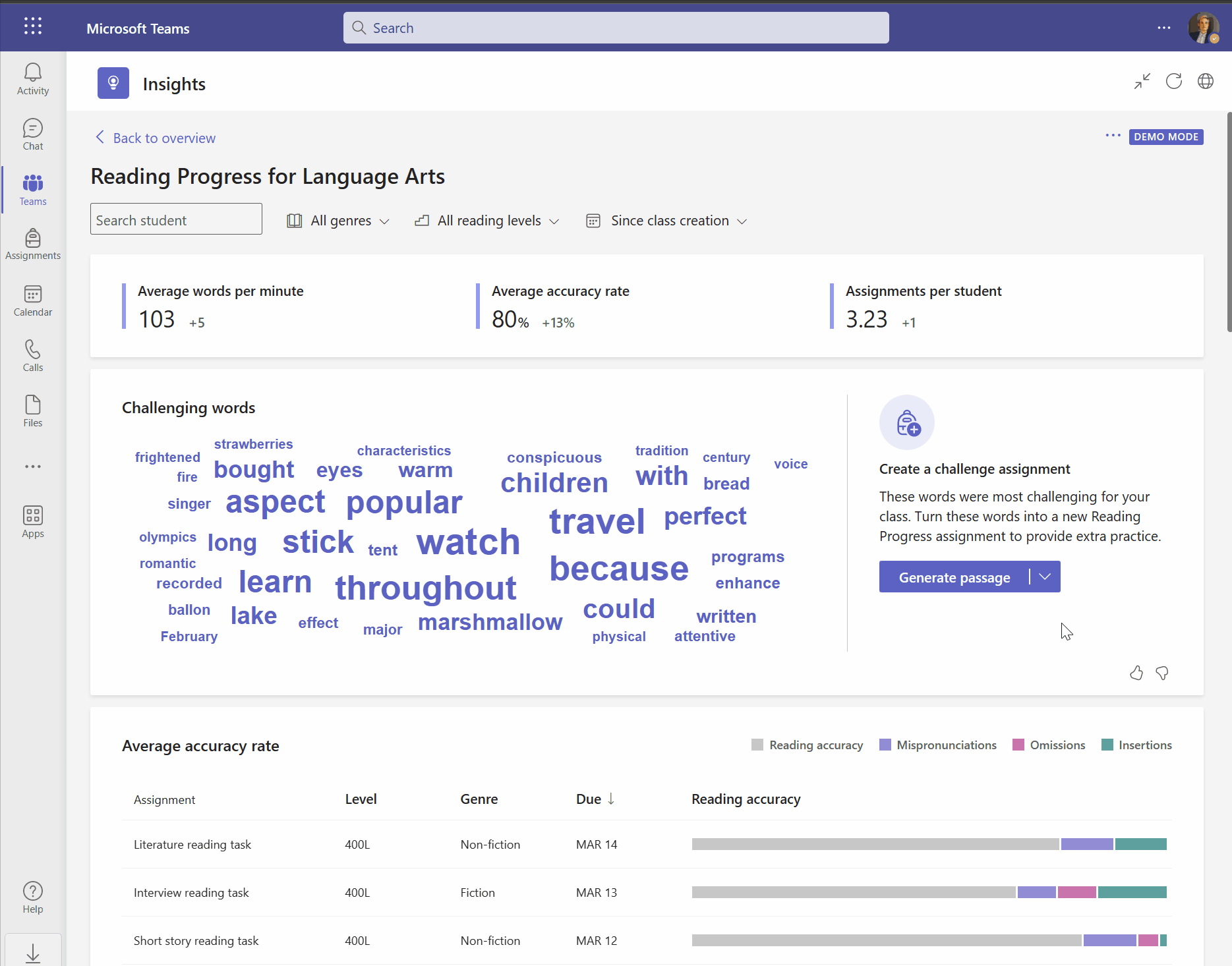
Several other applications, such as predictive analysis of students’ performance, will ensure that students and teachers alike are able to strive for the right academic goals. AI-powered laptops in academics can also foster an environment of selective collaboration between students where students can effortlessly interact with their peers from across the globe and thrive to attain academic excellence.
AI-powered laptops in academics as research assistants
The monumental increase in the popularity of tools like ChatGPT, Google Gemini, and Microsoft Copilot in academic circles is testament enough to the fact that they are capable of producing results that help both students and professors get their tasks done with ease. Not only this, there are tools like Scholarcy, Research Rabbit, Consensus.app, and Semantic Scholar, which are already immensely popular among researchers working on a variety of research projects. A survey by JSTOR found that 92% of academic researchers value online resources for their work.
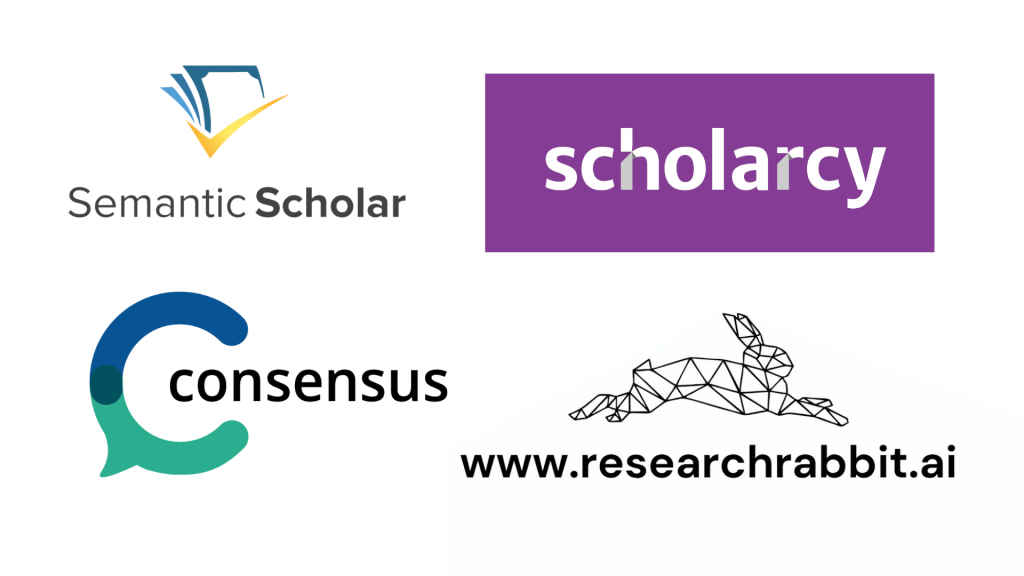
Now, with time, given the increasing popularity of AI-powered laptops in academics, we will see an increase in the number of such tools that can run natively on laptops. This will increase the efficiency of students and academicians who are working on their research projects. The primary application of these tools on AI-powered laptops will be seen in the literature review that researchers conducted during the course of their study.
Having a tool that can natively run on your laptop will also aid in the reduction of distractions that can derail the researchers when they are working on their projects. These native tools on AI-powered laptops can also employ predictive algorithms to aid the researchers by suggesting related works that can be referred to or better and more effective research methodologies that can be employed to get better and more accurate results.
Students can run hardware-intensive tasks easily
Various streams of research and academics, especially in disciplines like medicine, physics, computer science, and other practical and core science disciplines, require students to run really hardware-intensive programs to compute their data. For this, most students resort to working on systems that are provided by their universities and schools, which are often limited by availability. This is where AI-powered laptops come into the picture.
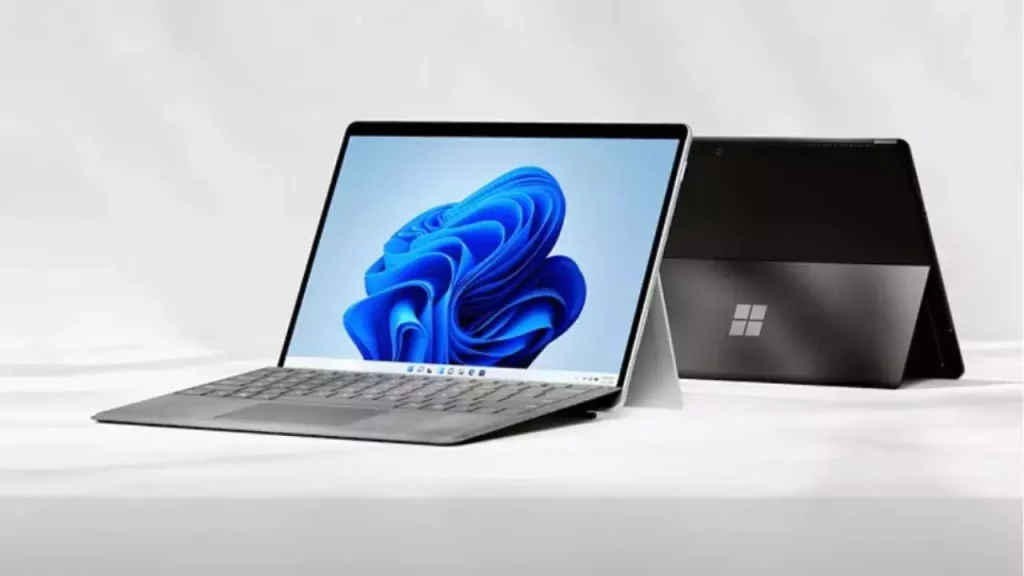
By utilising their in-built algorithms, AI-powered laptops in academics can come up with solutions that will optimise the hardware allocation on the laptop whenever the user is running an intensive data processing task or program. They can open the gates for individuals to ensure that they do not have to rely on getting their time with a capable enough machine at their institute to get their work done. This will not only aid individuals who cannot afford to have high-end hardware in their laptops to expand their horizons, but they will also let individuals running underpowered machines to increase the efficiency of their workflow.
Easy and quick assessments and solutions to problems
This is a two-pronged benefit of having AI-powered laptops in academics. Utilising laptops with the capability to run AI applications natively can not only help educators streamline their assessment but can also help students get easier and quicker solutions to their problems via virtual tutors, enabling them to get answers to their questions at any time.
Virtual tutors are already being deployed across the world, so adapting that for Indian applications with the increasing influx of AI-powered laptops in academics will foster a better learning environment for students. In a statement by the United Arab Emirates Ministry of Education published by Microsoft, it was stated that the nation’s government is already working towards using AI-enabled virtual tutors as a part of their education system. It read –
“The future holds numerous opportunities and challenges, and as a Ministry of Education, we are keen to benefit from the opportunities and confront any challenges. We believe that integrating AI within our educational system and harnessing modern and cutting-edge technologies is key to improving the quality of education and equipping our future leaders with the skills they need to flourish in an ever-evolving world. Our partnership with Microsoft to build an AI tutor is another step in our ongoing efforts to enhance the learning experience of our students. We will continue working shoulder to shoulder with our partners to contribute to driving the future of education.”
– United Arab Emirates Ministry of Education via Microsoft
Coming to the topic of streamlined assessment processes for educators, a research study published by Thomas B. Fordham Institute stated, “Teachers spend about 11 hours a week grading assignments”. Now, suppose these professors have access to AI-powered laptops, which can aid them in streamlining their assessment process. In that case, they can dedicate that time towards developing even more innovative methods of teaching or aiding in furthering the development of the pedagogy of their institute.
Challenges and concerns around using AI-powered laptops in academics
As they say, there are two sides of each coin. When we have the co[AI]n in our hands, especially when working with the topic of AI-powered laptops in academics, on one side, we have the countless ways in which AI-powered laptops will help students and educators. However, on the other side, where we have ethical concerns and challenges around AI-powered laptops in academics, which we need to look at.
Digit’s Managing Editor, Mithun Mohandas, in his editorial in the February 2023 issue of Digit Magazine, wrote about Hallucin[AI]tion, which refers to the phenomenon of an AI content generator giving information that is untrue or not present’ it makes it up on its own. Mithun wrote, “The articles generated by AI models might sometimes come across as believable but might be completely made up with no actual basis backing it up.” And, this was based on his own experience using ChatGPT back then.
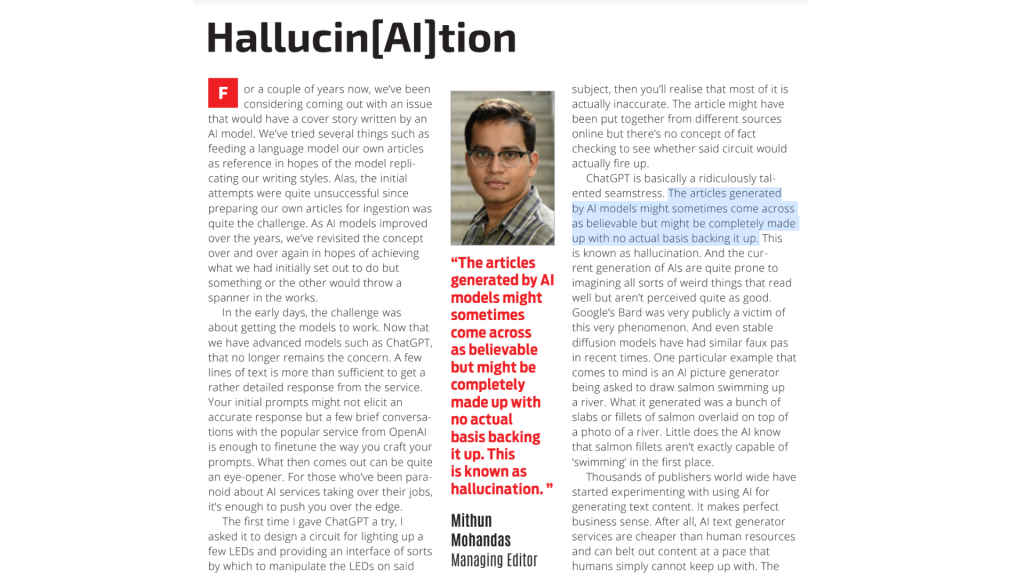
He also noted how AI-generated articles are seeing wider adoption by publishers across the world, and this would lead to factually inaccurate information being published, which in turn would be referred to by a generative AI, and this will start a never-ending virtuous cycle of inaccurate information being propagated.
Considering this is an issue that most AI-powered content generation tools suffer to this date, fact-checking the information that is being generated by these tools is more important than ever. Especially when we are looking at the use of AI-powered laptops in academics. Add to that, the biases that come with the content generated by AI tools and certain accessibility issues; you will get concerned. However, it is important to note here that AI for public use and AI-powered laptops in academics are in nascent stages and there is immense potential that they hold. So, until then, it will be up to the stakeholders in the academic community the ensure that they are responsibly using AI-powered laptops in academics and related applications.
If you are looking to buy an AI-powered laptop, check out this list of the best AI-powered laptops that you can buy in India right now —
Satvik Pandey
Satvik Pandey, is a self-professed Steve Jobs (not Apple) fanboy, a science & tech writer, and a sports addict. At Digit, he works as a Deputy Features Editor, and manages the daily functioning of the magazine. He also reviews audio-products (speakers, headphones, soundbars, etc.), smartwatches, projectors, and everything else that he can get his hands on. A media and communications graduate, Satvik is also an avid shutterbug, and when he's not working or gaming, he can be found fiddling with any camera he can get his hands on and helping produce videos – which means he spends an awful amount of time in our studio. His game of choice is Counter-Strike, and he's still attempting to turn pro. He can talk your ear off about the game, and we'd strongly advise you to steer clear of the topic unless you too are a CS junkie. View Full Profile




